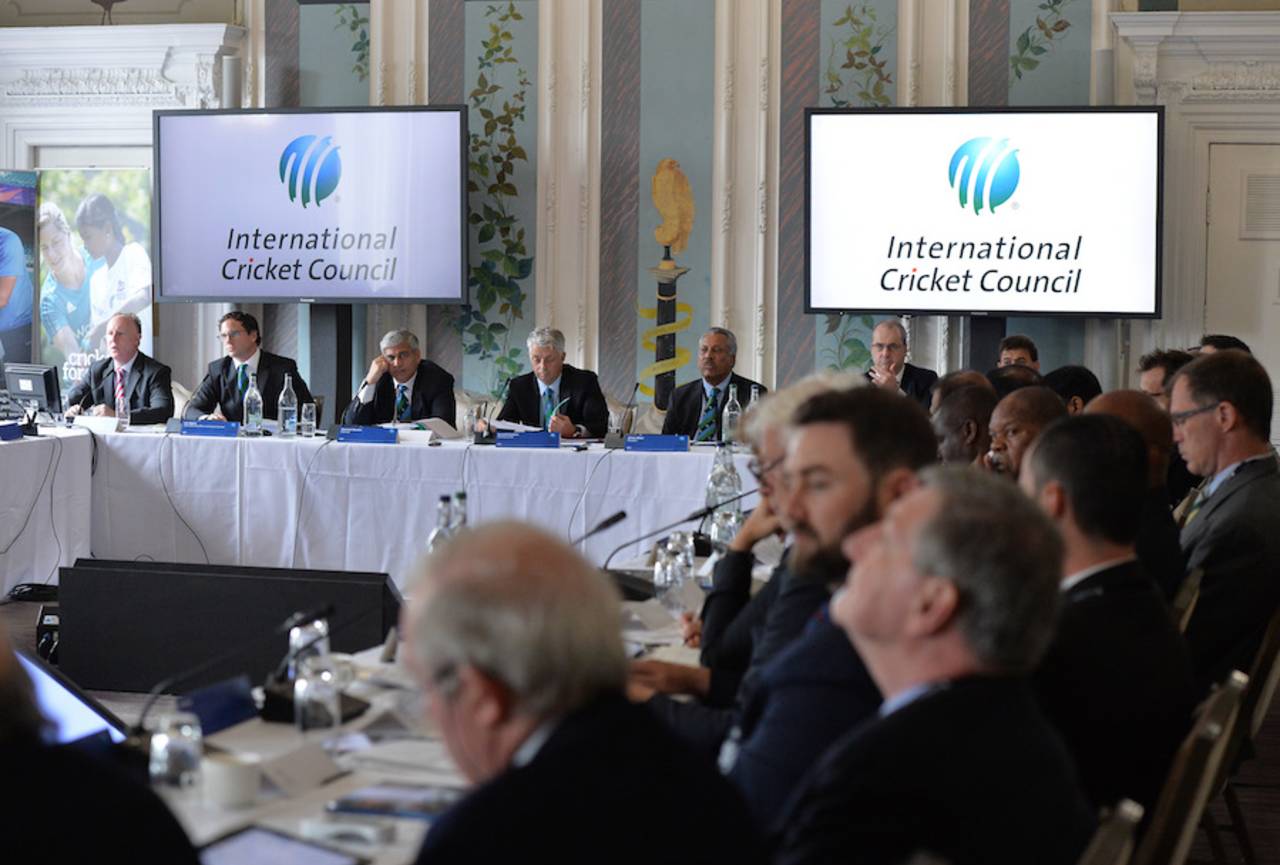Explainer - The proposed change in the make-up of ICC board
One potentially significant change in the proposed new ICC constitution will be to the make-up of the ICC board and how it votes for resolutions
ESPNcricinfo staff
Feb 22, 2017, 12:18 PM

In the new ICC constitution the board has been expanded to 15 directors • IDI/Getty Images
One potentially significant change in the proposed new ICC constitution will be to the make-up of the ICC board and how it votes for resolutions.
You what now?
The ICC board is the main decision-making body, where the ICC chairman and all the heads of the member boards sit. This is where all the decisions - big, small or otherwise - are taken.
So how does it work?
At the moment, it works on a simple voting system. The current board consists of 14 directors: the chairmen of the 10 Full Member nations, the ICC chairman and three chairmen from the Associate nations. In terms of the voting through of resolutions, however, only the 10 Full Members have a vote. If there happens to be a deadlock, the ICC chairman has the casting vote. The Associates do not have a vote.
How many votes to pass a resolution?
The current constitution - which is the one that is under review - states: "A resolution proposed at a meeting of the Executive Board shall be deemed to have been carried by a simple majority only if:
1) More than one half of the aggregate number of votes exercisable by all the Full Member Directors and by all the Associate Member Directors shall have been cast in favour of the resolution; and
2) not less than two-thirds of the aggregate number of votes exercisable by all the Full Member Directors shall have been cast in favour of the resolution irrespective of whether or not all of the Full Member Directors shall have actually been present in person or by proxy."
In non-legalese, seven (out of ten votes) is the magic number.
What's changed? Or what might change?
In the new constitution the board has been expanded to 15 directors - the 10 Full Member chairmen, the three chairmen of Associate nations, the ICC chairman and one other independent director who will be female.
Is that it? Just one more vote?
Nope. Unlike now, the Associate chairmen and independent female director will have full and equal voting rights. "The distinction between voting rights of Full Member directors and Associate Member directors at the Board level has been removed," the email states. "All Voting Board Members (namely the Chairman, the Full Member directors, the Associate Member directors and the Independent Director) now have an equal right to vote and an equal weight of vote."
And we're still looking at a 2/3 vote in favour for a resolution to pass?
We are. But whereas before that meant securing seven out of ten votes, now for any resolution to pass means it will need at least 10 votes out of 14 in its favour.
Ah I see. So that means…
Well, in theory, the new diversity of voters might mean a changing scape for alliances - whereas previously voting patterns were often shaped by geographic alliances, or by whichever boards wielded the greatest influence, a new board, with greater independent presence will be, on paper, more resistant to such forces.
Anything else I need to know?
Yes, actually. A provision has also been made in the proposals for the use of secret ballots upon request, meaning board members will no longer know how the others have voted. That could, potentially, prevent the kind of bullying and horsetrading that has marked many previous votes.